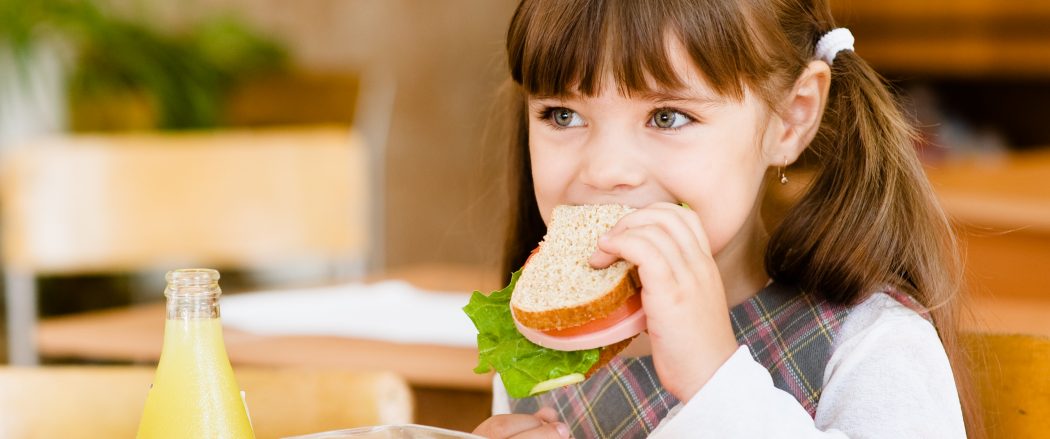To nurture the skills of resilience is key to providing young people with the ability to cope with stress, adversity, failure and challenges. Resilience is evident when young people have a greater ability to “bounce back” when faced with difficulties and achieve positive outcomes.
Resilience is required to apply the effort to prepare food, persist in trying new foods and to choose meals containing fruits and vegetables rather than highly refined and processed options.
The issue locally and nationally
Excess weight among children continues to be a major problem across England, with concerns about the rise of childhood obesity and the implications of such obesity persisting into adulthood. Across Cambridgeshire the proportion of children with excess weight is generally better than England averages, but is not so good in particular areas notably Peterborough and Fenland.
- On average as a population, we are not achieving government healthy eating guidelines. We consume too much saturated fat, salt, and sugar, and eat too little fibre than is recommended.
- Children are consuming well over twice the recommended level of sugar.
- Only 8% of 11-18-year olds meet the recommended 5 a-day fruit and vegetable consumption. On average as a population, we are not achieving government healthy eating guidelines. We consume too much saturated fat, salt, and sugar, and eat too little fibre than is recommended.
- Children are consuming well over twice the recommended level of sugar.
- Only 8% of 11-18-year olds meet the recommended 5 a-day fruit and vegetable consumption.
Source: PHE December 2020
What is known to work
Effective interventions are those that adopt a whole school approach as outlined below in the key actions schools can take.
A whole-school approach to food that goes beyond lunchtimes and teaching in the classroom can achieve positive outcomes. A good school food culture helps children develop healthy eating habits so they can live healthier, longer lives.
Rates of overweight and obesity in both children and adults are continuing to rise nationally and locally. Helping children to have healthy attitudes and behaviours, along with good evidence based knowledge will enable them to make healthy choices as the default option and will allow them to develop and demonstrate the skills and abilities necessary to make informed choices about what they eat and drink, when and why.
Key actions for schools to take
Adopt a ‘whole school’ approach
- Treat lunchtime as part of the school day, your canteen as an extra classroom and your cooks and lunchtime supervisors as key members of staff.
- Bring your school cook to parents’ evenings – not to serve the food, but to answer questions from parents about their children’s eating habits.
- Make sure children get consistent messages about nutrition in lessons and at lunchtime.
- Choose classroom rewards for children that are not sweets.
- Grow food in your school, and use some in the school lunch.
- Use cooking and growing as an exciting way to teach subjects across the curriculum – from history to maths, science to enterprise, technology to geography.
- Offer after school cooking lessons for parents and children.
- Encouraging teachers to eat in the dining hall.
Food
- Eat in the canteen often. Ask yourself whether the food looks appetising and tastes good.
- Be sure there is a mix of familiar and new foods for the children, and that the catering staff encourage children to experiment.
- Use local and seasonal suppliers, and make a song and dance about it.
- Manage children’s choices to ensure they get a balanced meal.
- Make sure packed lunches are not a ‘better’ option as it is far easier to get the necessary nutrients into a cooked meal than a packed lunch.
- Watch what gets served at mid-morning break.
- Ensure tap water is widely available at all times.
Environment
- Look around your dining hall. Is the room clean and attractive?
- Keep queuing times short.
- Have a cashless payment system.
- Replace prison-style trays with proper crockery.
Social Life
- Have a stay-on-site rule for break and lunch time.
- Allow all children to sit together – don’t segregate those with packed lunches.
- Structure the lunch break so there is sufficient time for eating as well as activities or clubs.
- Give special consideration to the youngest children at secondary schools, who might be intimidated by the noise and rush of lunch break.
- Get the price right
- Consider subsidising school meals for your reception, year 1 or year 7 classes for the first term.
- Offer lunch discounts for parents with more than one child at the school, or whose children eat a school lunch every day.
Improve the brand
- Encourage teachers to eat in the dining room with the children.
- Make menus available in advance to children and parents online.
- Offer samples of the food for children to taste.
- Hold themed events – such as World Cup day, or international food day – to get the children excited.
- Organise a group to represent children’s views on school lunch, such as a school nutrition action group (SNAG) or a School Council.
- Give children opportunities to prepare, cook or serve the food.
Leadership
- Get the community involved
- Give parents, carers and grandparents the opportunity to taste school food and eat with the children at lunchtime and/or parents’ evenings.
- Invite family members to help with cooking or gardening clubs.
- Seek out partners in the community who can help with cooking and growing activities, e.g. local restaurants, food producers, allotment growers.
- Get the right catering contract – use an expert to help you draft it.
- Ask your caterer to draw up a clear, written plan for increasing take-up over a set period.
- Make it a contractual requirement for your caterer to achieve a certain standard of quality.
By the end of primary school pupils should know
- What constitutes a healthy diet (including understanding energy balance, and the benefits).
- The principles of planning and preparing a range of healthy meals.
- The pleasures of growing, cooking, trying new foods and eating proper food.
- The characteristics of a poor diet and risks associated with unhealthy eating (including, for example, obesity) and other behaviours (e.g. the impact of alcohol on diet or health).
By the end of secondary school pupils should know
- How to maintain healthy eating and the links between a poor diet and health risks, including eating disorders and cancer.
- The pleasures of growing, cooking, trying new foods and eating proper food.
Source – Public Health Education
Local Support

Healthy You
Healthy You has been commissioned and funded by Cambridgeshire County Council and Peterborough City Council to provide a range of health and active lifestyle services for people in Cambridgeshire and Peterborough. The FREE services for Cambridgeshire and Peterborough residents who are looking to make changes to their lifestyle, include:- Stop Smoking Falls Drink Less Weight
Read More About Healthy You
Life Education Cambridgeshire & Peterborough
Life Education is a primary prevention programme focusing on drug and health education. We explore with young people how amazing their bodies are and how the human body can be affected by drugs. We develop understanding around physical and mental health. Through the ‘life skills’ approach, children are enabled to practise how to make healthy
Read More About Life Education Cambridgeshire & Peterborough
MittFit
Joe Mitton, owner and founder of MittFit, is a multi-award winning personal trainer who has worked directly with over 1,000 local Cambridge residents and does a lot for his community through work in schools, homeless shelters and other charities. MittFit takes a holistic approach to health and fitness working hard to personalise as much of
Read More About MittFit
PECT – Creating sustainable places
PECT is an environmental charity that aims to make places better for people and the planet. We promote sustainable practices to help protect our environment now and to leave a legacy for future generations. Globally we are using more resources than the planet can renew each year. This means that we are emitting more carbon
Read More About PECT – Creating sustainable places
PEDS
Personalised Eating Disorder Support We are a Nurse-led specialist eating disorder charity based in Peterborough, supporting individuals in the Peterborough and Cambridgeshire area. Our charity offers assessment and support with signposting and where appropriate to service users, families and loved ones and professionals. We offer our service users individual sessions which are tailored to meet
Read More About PEDSResources
Documents
Teacher Guidance
- Checklist for School Lunches
- Childhood Obesity: a plan for action
- DfE Healthy Eating Training module (primary)
- DfE Healthy Eating training module (secondary)
- DfE School food in England Advice for governing boards March 2019
- Food A Fact of Life RSE and Health Education Mapping KS1-4
- Food A Fact of Life RSE and Health Education Presentation
- Food A Fact of Life RSE and Health Education Primary Mapping
- Food A Fact of Life RSE and Health Education Secondary Mapping
- Food Teachers Mapping Secondary
- PECT ‘Food in school’ webinar July 2020
- PHE Food teaching in primary schools: A framework of knowledge and skills
- Picky Eating Meal Time Hints
- RSE and Health Education DfE Guidance
- School Food Standards A practical guide for schools
- Teaching Food to students with Aspergers/Autism
- The School Food Plan
- The School Food Plan A checklist for head teachers
- The School Food Standards
External Links
- British Nutrition Foundation
- Change4life
- Food a Fact of Life Teaching Resources
- Food A Fact Of Life; a presentation and webinar on RSE and Health Education 2020, links to Food and Nutrition.
- Food A Fact Of Life; RSE and Health Education mapping documents for KS1-4
- Food Label – FDF
- Food Miles Calculator
- Fussy Eating
- Love Food Hate Waste
- NFU Education
- Public Health England – Healthy Eating
- RHS School Gardening
- School Food Standard Guidance
- The Food Teacher Centre



